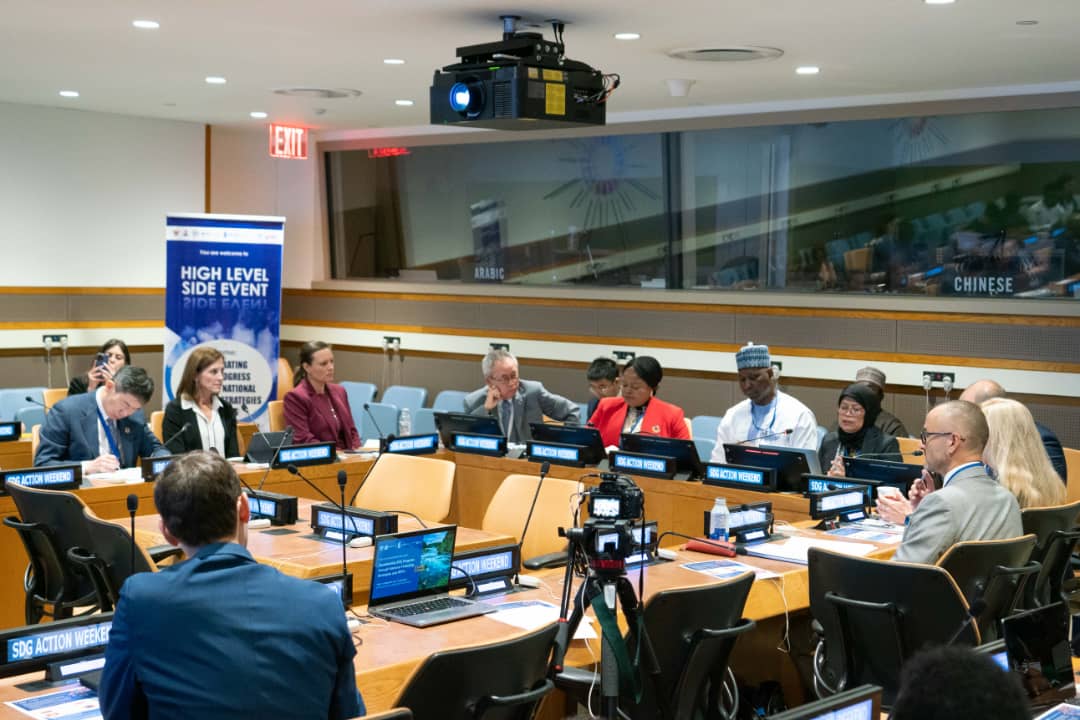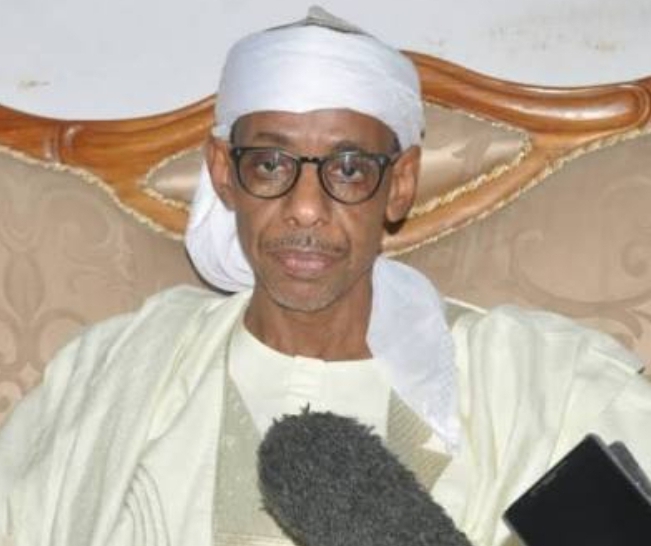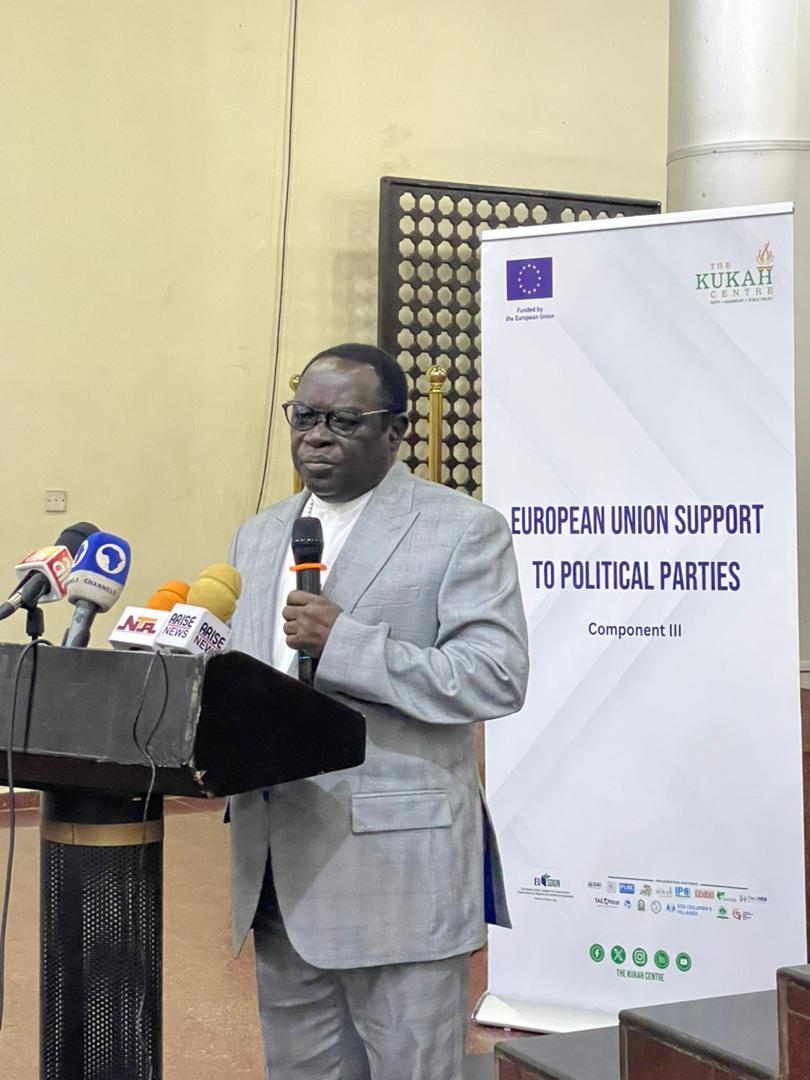Princess Adejoke Orelope-Adefulire, the Senior Special Assistant to the President on Sustainable Development Goals, SSAP-SDGs has joined leaders and experts from around the world to call for increased investments and alignments of resources from public, private, domestic, and other sources to accelerate progress on the delivery of 2030 Agenda.
Orelope-Adefulire made the call while speaking at a high-level event held at the margins of the 78th Session of the United Nations General Assembly (UNGA78) in New York tagged, “Accelerating SDGs Progress Through National Financing Strategies and Integrated National Financing Frameworks (INFFs).”
The event was organized by the governments of Nigeria and Indonesia, in collaboration with key partners including the INFF Facility, UNDP, UNDESA, UNICEF, and the International Budget Partnership (IBP) with the aim of shedding light on the critical role of national financing strategies and INFFs in achieving SDGs.
It also provided a platform for countries to share their experiences, challenges, and solutions related to financing strategies, furthering the global conversation on how INFFs and national financing strategies can drive progress towards the SDGs in the second half of the timeline for achievement of the goals.
Speaking at the event, Princess Orelope-Adefulire acknowledged the transformative potential of the 2030 Agenda for Sustainable Development and the commitment of development partners, particularly the United Nations, in advancing this global agenda.
She noted that Nigeria, in alignment with its national development priorities, has integrated the SDGs into key policy documents, including the Economic Recovery and Growth Plan, the Economic Sustainability Plan, the National Poverty Reduction with Growth Strategy, and the National Development Plan.
Highlighting Nigeria’s pioneering role, Princess Orelope-Adefulire noted that the country made history with the launch of her INFF Report at the UNGA last year. She emphasized that the INFF serves as a vital planning tool to enhance sustainable development financing at the national levels, in line with the Addis Ababa Action Agenda.
The senior special assistant reiterated Nigeria’s commitment to leveraging the INFF framework, especially in light of global fiscal challenges. She underscored the importance of mobilizing both domestic and international resources to finance sustainable development, highlighting the need for investments in the public sector to be aligned with the SDGs.
Princess Orelope-Adefulire also expressed Nigeria’s intent to prioritize investments with multiplier effects on all the SDGs and to strengthen partnerships with the United Nations Development system, the private sector, and non-state actors with the aim of fostering a collaborative “whole of society” approach to implementing the INFF Roadmap in Nigeria.
She concluded by restating Nigeria’s unwavering commitment to advancing the SDGs.
Also speaking, Ms. Kitty van der Heijden, Deputy Executive Director of Partnerships, UNICEF noted that INFF is significant as an instrument for prioritizing expenditures in favour of social and environmental sectors in an inclusive way.
She particularly lauded Nigeria’s efforts in exploring the possibility of aligning the national and sub-national budget allocations with the SDGs.
Ms. Kitty van der Heijden further stated that to deliver on the SDGs, countries need a strategic mix of public and private capital, in addition to the call by the UN Secretary-General for SDG stimulus, more ODA spending, more development lending, and more contingency finance at the same time.
This position was re-echoed by Mr. Haoliang Xu, Under Secretary-General and Associate Administrator, UNDP, who added that the effort by Nigeria is a worthy example for other UN member-states to adopt.
The High-Level event featured other distinguished speakers, including Ms. Raden Siliwanti, Director for Multilateral Funding at the Ministry of National Development Planning in Indonesia, Mr. Li Junhua, Under Secretary-General of UNDESA, Mansur Mukhtar, former Minister of Finance, Tijjani Muhammad-Bande, Permanent Representative of Nigeria to the United Nations and former President of the 74th session of the UNGA, Ms. Ana Patricia Muñoz, Executive Director of IBP, Ms. Elizabeth Boggs Davidsen, Vice President of the Office of Development Policy, and Mr. Patrick Rabe, UN Partnerships Team Lead at the European Commission.











